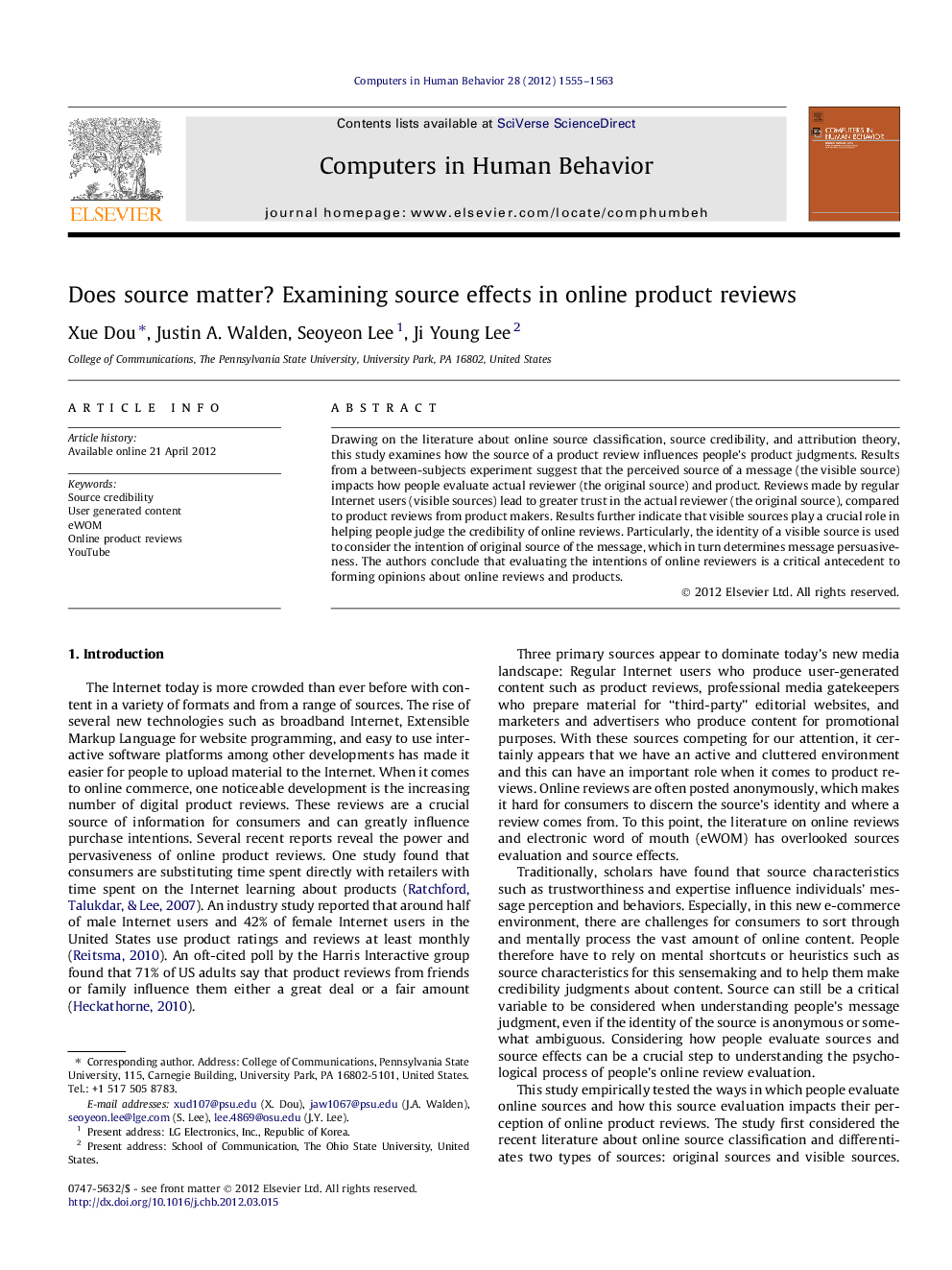| Article ID | Journal | Published Year | Pages | File Type |
|---|---|---|---|---|
| 351097 | Computers in Human Behavior | 2012 | 9 Pages |
Drawing on the literature about online source classification, source credibility, and attribution theory, this study examines how the source of a product review influences people’s product judgments. Results from a between-subjects experiment suggest that the perceived source of a message (the visible source) impacts how people evaluate actual reviewer (the original source) and product. Reviews made by regular Internet users (visible sources) lead to greater trust in the actual reviewer (the original source), compared to product reviews from product makers. Results further indicate that visible sources play a crucial role in helping people judge the credibility of online reviews. Particularly, the identity of a visible source is used to consider the intention of original source of the message, which in turn determines message persuasiveness. The authors conclude that evaluating the intentions of online reviewers is a critical antecedent to forming opinions about online reviews and products.
► We examine how consumers perceive the sources and intentions of online product reviews. ► We show how visible sources are crucial in evaluating the credibility of online reviews. ► Visible source perceptions shape perceived intentions of message’s original source. ► The intention of original source, in turn, determines message persuasiveness. ► This study extends discussions of source effects to the context of online commerce.
